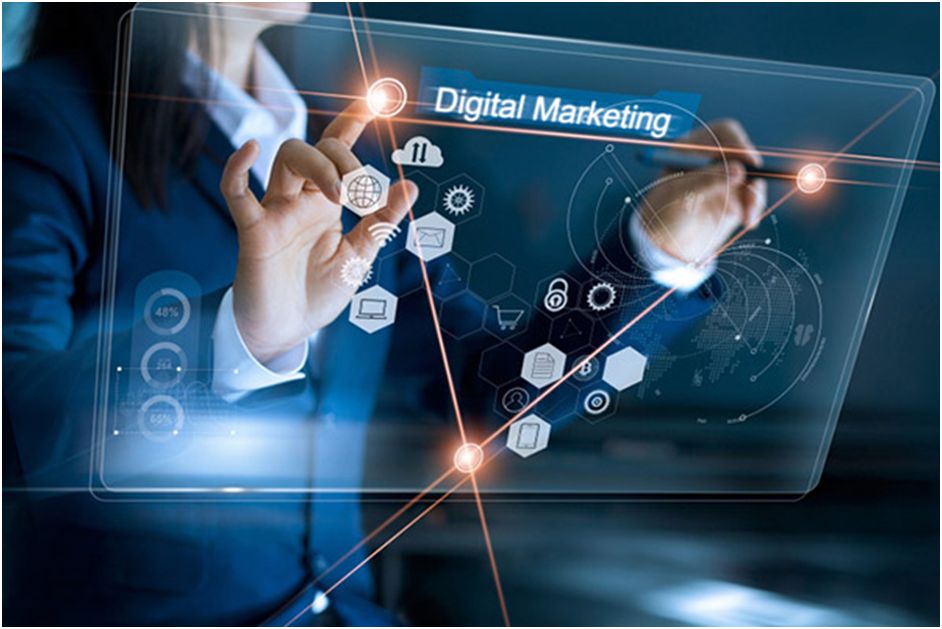Introduction:
In the ever-evolving landscape of digital marketing, staying ahead of trends and innovations is crucial for businesses aiming to capture and retain the attention of their target audience. As technology continues to advance and consumer behaviors evolve, marketers must adapt their strategies to remain relevant and competitive in the digital sphere. In this article, we will explore the future of digital marketing, examining emerging trends and innovative strategies that are reshaping the way brands connect with consumers.
- Personalization and Data-Driven Marketing:
One of the most significant trends shaping the future of digital marketing is the emphasis on personalization and data-driven strategies. With the abundance of data available through various digital channels, marketers have unprecedented opportunities to understand their audience’s preferences, behaviors, and needs on a granular level. Leveraging advanced analytics tools and artificial intelligence, businesses can create highly targeted campaigns that resonate with individual consumers, ultimately driving engagement and conversions.
Personalization goes beyond simply addressing customers by their first name in an email; it involves delivering tailored content, product recommendations, and offers based on demographic information, browsing history, purchase patterns, and even real-time interactions. By delivering relevant and timely messages to consumers, brands can enhance customer experiences and foster stronger relationships, leading to increased loyalty and lifetime value.
- Voice Search Optimization:
The rise of voice-enabled devices and virtual assistants like Amazon Alexa, Google Assistant, and Apple’s Siri has led to a significant shift in how people search for information online. Voice search is becoming increasingly prevalent, with millions of households adopting smart speakers and voice-activated technology as part of their daily routines. For digital marketers, optimizing content for voice search presents a new set of challenges and opportunities.
Unlike traditional text-based searches, voice queries tend to be more conversational and long-tail, reflecting natural language patterns. Marketers need to understand the nuances of voice search and optimize their content accordingly to ensure visibility in voice-enabled search results. This includes incorporating conversational keywords, providing concise answers to common questions, and structuring content in a format that is easily digestible by virtual assistants.
- Video Marketing Dominance:
Video has become the preferred content format for many consumers, with platforms like YouTube, TikTok, and Instagram driving the proliferation of video content across the digital landscape. As attention spans continue to shrink, marketers are turning to video as a powerful tool for capturing and retaining audience engagement. From short-form videos and live streams to immersive 360-degree experiences, brands are finding innovative ways to leverage video to tell their stories and connect with consumers on a deeper level.
The future of digital marketing will undoubtedly be dominated by video, with platforms prioritizing video content in their algorithms and users craving more visual experiences. Marketers must adapt by investing in high-quality video production, experimenting with interactive formats, and optimizing videos for mobile consumption. By harnessing the power of video, brands can cut through the noise and deliver compelling messages that resonate with their target audience.
- Augmented Reality (AR) and Virtual Reality (VR) Experiences:
Augmented reality (AR) and virtual reality (VR) technologies are revolutionizing the way consumers interact with brands and products, offering immersive and interactive experiences that blur the lines between the physical and digital worlds. From virtual try-on experiences and interactive product demos to gamified marketing campaigns, AR and VR have the potential to transform digital marketing in profound ways.
Retailers are already leveraging AR technology to allow customers to visualize how products will look in their homes before making a purchase, while brands are using VR to transport users to virtual worlds where they can explore and engage with branded content. As AR and VR technology becomes more accessible and affordable, we can expect to see a proliferation of immersive marketing experiences that drive deeper engagement and foster emotional connections with consumers.
- Influencer Marketing Evolution:
Influencer marketing has emerged as a powerful tool for brands seeking to reach new audiences and drive engagement on social media platforms. However, as the influencer landscape becomes increasingly saturated and consumer trust in traditional influencers wanes, marketers are reevaluating their approach to influencer partnerships.
One notable trend in the future of influencer marketing is the rise of micro and nano influencers—individuals with smaller but highly engaged followings who offer authentic and niche-specific content. Micro influencers often have a deeper connection with their audience and can deliver higher levels of engagement and ROI for brands seeking to target specific demographics or niche markets.
Another trend is the shift towards long-term, authentic partnerships between brands and influencers, where influencers become ambassadors for the brand rather than just spokespeople. By building genuine relationships with influencers and co-creating content that aligns with their values and interests, brands can establish credibility and authenticity in the eyes of consumers, driving long-term loyalty and advocacy.
- AI-Powered Marketing Automation:
Artificial intelligence (AI) is revolutionizing the way marketers automate and optimize their campaigns, enabling more efficient and personalized interactions with consumers across various touchpoints. AI-powered marketing automation platforms leverage machine learning algorithms to analyze vast amounts of data in real-time, allowing marketers to deliver hyper-targeted messages and recommendations to individual customers.
From predictive analytics and lead scoring to chatbots and personalized email campaigns, AI is streamlining marketing processes and driving greater efficiency and effectiveness. By automating repetitive tasks and leveraging AI-driven insights, marketers can focus their efforts on strategic initiatives that drive growth and innovation, ultimately delivering more value to both customers and businesses.
Conclusion:
The future of digital marketing is filled with exciting possibilities, driven by emerging technologies, shifting consumer behaviors, and evolving industry trends. From personalized experiences and immersive content to AI-powered automation and influencer partnerships, marketers must stay ahead of the curve to remain competitive in the digital landscape. By embracing innovation, embracing change, and prioritizing customer-centric strategies, businesses can position themselves for success in the dynamic world of digital marketing.
Must be read:
